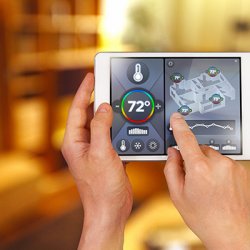
Buying a new home is exciting and complicated, so you are likely thinking about a lot more than just the HVAC system in your considerations. Indeed, an HVAC inspection may be at the bottom of your list — a good idea, but not a priority for deciding on your dream home. The HVAC system can have a huge impact on the livability of a potential home though. A thorough HVAC inspection should be a priority for anyone considering buying a home, and there are some important things to look out for when you are assessing the heating & air conditioning system in a potential new home.
HVAC Inspection Basics: Age, Sizing, and Capacity
There are of course the obvious considerations such as the age of the HVAC system and whether it has needed much maintenance or repair in the past — which can indicate whether you will need to replace or update it soon — but there is more to a good HVAC inspection than just that.
One important consideration is air conditioner sizing and whether the unit in the house is the right size for the space. An oversized AC unit can not only increase your energy bills over time, but it can also contribute to breakdowns and lower air quality. Unfortunately, many homes are outfitted with HVAC systems that are too big or small for the space, so make sure you know the capacity of the air conditioner in your new home and check that it’s not under or oversized for the space.
Ask About Efficiency During Your HVAC Inspection
Another key factor to ask about during a home HVAC inspection is energy efficiency. Heating and cooling have a big impact on your home energy efficiency rating and issues with efficiency can also indicate larger problems that can lead to breakdowns down the line. Look out for the unit’s bright yellow EnergyGuide label, which has information about the energy efficiency of each AC model. Some AC units will be Energy Star qualified, which indicates high energy efficiency — and lower costs for you.

Similarly, you should make sure your HVAC inspection includes an assessment of the ductwork and insulation in the home to check for leaks and gaps. Leaks, gaps, and openings in ducts or insulation can also reduce energy efficiency significantly, and no HVAC system will work well in a poorly insulated building.
Get in Touch with a Professional HVAC Inspection Team
The best tip for an effective HVAC inspection though is to work with a talented and knowledgeable HVAC inspection team. Heating and cooling professionals know what to look for in terms of potential problems and important features you might want. From there, you can determine if the HVAC system in the home you are considering will meet your needs and whether this could impact the price you negotiate for the purchase. An HVAC inspection can also help you avoid a purchase that otherwise looks right, but isn’t a good idea with the risk of HVAC breakdown present.
A lot of people overlook heating & air conditioning as a factor in buying a new home, but your HVAC system has a big impact on quality of life and can be a source of huge costs if it is not working well.









